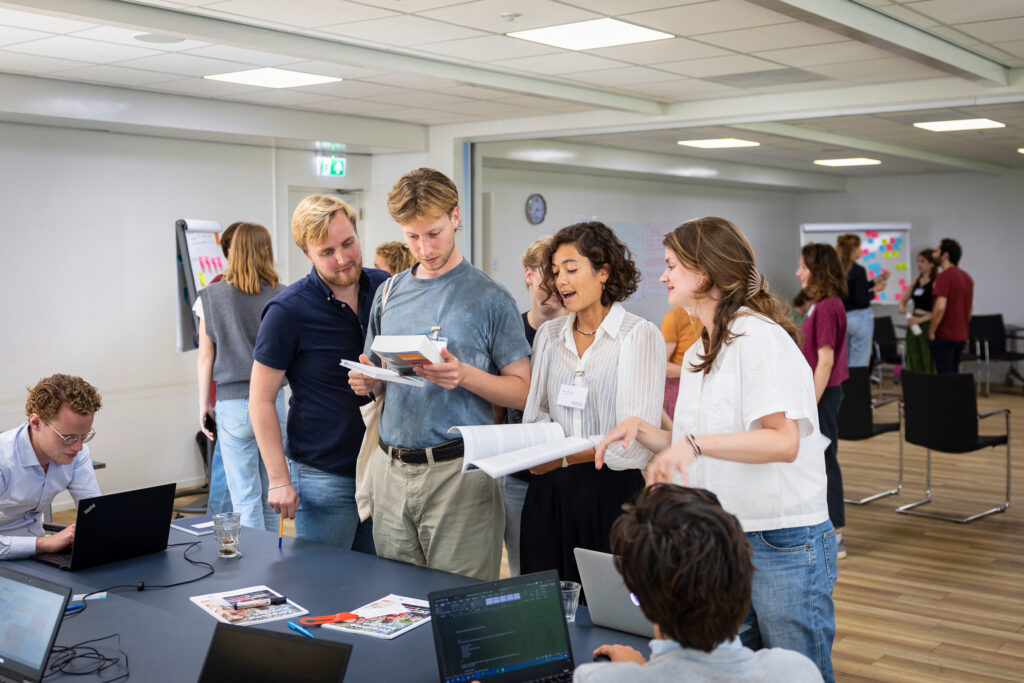'Het is superleuk dat ik nog steeds een groep mensen in mijn leven heb bij wie ik altijd terecht kan als ik iets wil ondernemen, die geen idee te gek vindt en altijd bereid is om te helpen.’
Denken in kansen en doen in oplossingen
DenkTankers zitten niet gevangen in systemen en kunnen daarom kritisch zijn. Kansen zien die anderen niet zien.
Wij vertegenwoordigen de stem van een nieuwe generatie en komen met laagdrempelige en positieve oplossingen. Wij zijn de steun in de rug bij een urgent, moeizaam en complex vraagstuk. Gaan we het probleem volledig oplossen? Nee. Maar we kunnen wel datgene loswrikken wat vastzit en een ander perspectief laten zien.
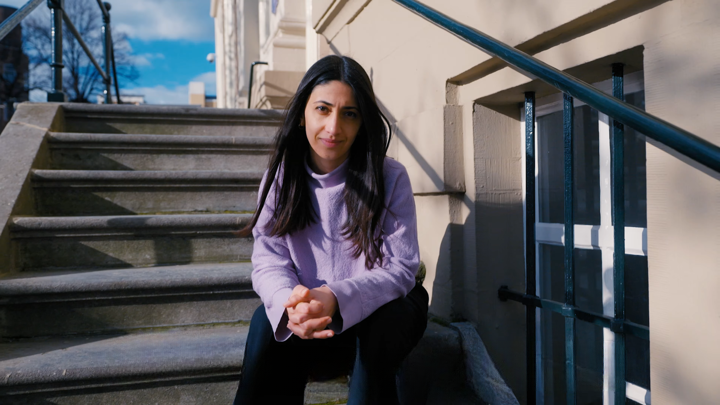
Voel jij je aangesproken?
Wil jij met andere DenkTankers systemen onderzoeken, kritische vragen stellen en overheid, burgers en het bedrijfsleven uitnodigen om buiten de gebaande paden te treden? Wil je samenwerkingen opzetten met mensen die het verschil willen en kunnen maken? Voor de NDT’24 kun je je niet meer aanmelden. Heb je interesse in deelname aan de NDT’25? Laat het ons dan vooral weten. We nodigen je dan uit bij evenementen en laten je meteen weten als de inschrijving voor NDT’25 van start gaat.
NDT’24: circulariteit en duurzaamheid
Dit jaar richt onze DenkTank zich op het zoeken naar kansen en oplossingen die Nederland vooruithelpen op het gebied van circulariteit en duurzaamheid.
Waarom? Omdat we zien dat er veel gebeurt, maar dat het vaak zó ingewikkeld wordt gemaakt dat niemand het meer begrijpt. We merken dat de tegenstellingen tussen bedrijven, de overheid en burgers steeds groter worden. We dreigen elkaar kwijt te raken. En dat terwijl samenwerking zo belangrijk is: een succesvolle circulaire maatschappij bouw je immers niet alleen. Kortom: het kan beter.
Tijdens de DenkTank
De DenkTank duurt 4 maanden. Daarin werken 20 DenkTankers van uiteenlopende studierichtingen en met verschillende kwaliteiten en talenten samen. Het programma begint in augustus met een Zomerschool van 2 weken waarin je elkaar goed leert kennen. Ook kom je meer te weten over het onderwerp en krijg je workshops over hoe je een probleem het beste kan aanpakken. Daarna ga je in kleinere teams aan de slag. In deze teams werk je aan je persoonlijke ontwikkeldoelen, duik je dieper in het onderwerp en ga je aan de slag met het bedenken en testen van oplossingen.
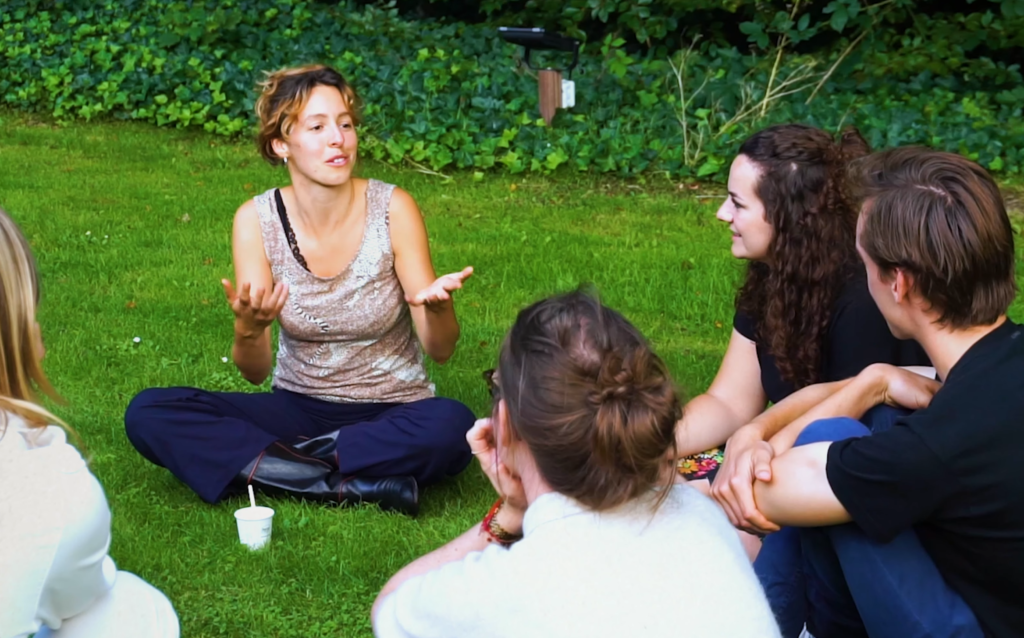
Na de DenkTank
Halverwege december worden de 4 maanden van de DenkTank afgesloten met een door jullie zelf georganiseerde presentatie van de oplossingen. Daarna gaan jullie onder begeleiding van onze partners verder met de oplossingen om ze onder de aandacht te brengen en uit te voeren. Al veel deelnemers zijn jullie voorgegaan. Kijk maar eens op onze impactpagina voor voorbeelden van bedrijven, stichtingen en beleidsvoorstellen die voortgekomen zijn uit de Nationale DenkTank. En, DenkTanker ben je voor het leven. Na de DenkTank blijf je onderdeel van het levendig en betrokken alumni- en partnernetwerk van de Nationale DenkTank.
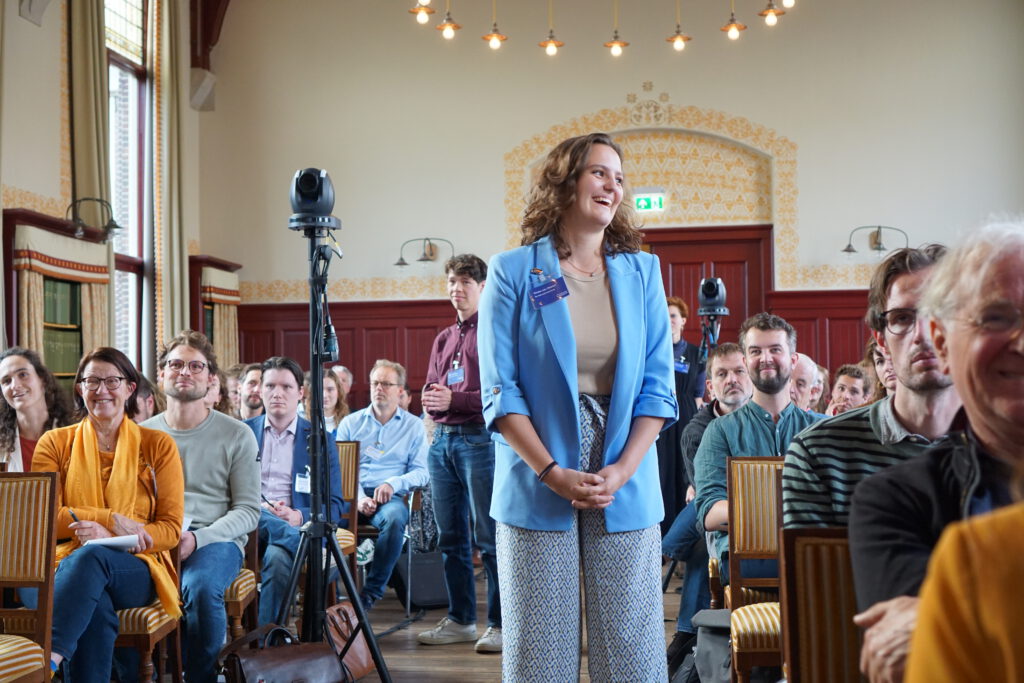
Wat leer je?
Je ontwikkelt nieuwe vaardigheden, je leert een probleem van verschillende kanten te benaderen en je wordt uitgedaagd om in recordtempo samen een fantastische prestatie te leveren. Je leert drie methodieken die je daarbij gaan helpen:
- Problem Solving Loop: een methode om tot de kern te komen van een probleem, waarbij je op zoek gaat naar de (belangrijkste) knelpunten.
- Theory of Change: een methode waarbij je een visie ontwikkelt en doelstellingen en stappen formuleert om je visie te bereiken.
- Design Thinking: een methode om tot creatieve en bruikbare oplossingen te komen door de gebruiker centraal te stellen.
Daarnaast krijg je training en begeleiding in:
- Feedback geven en ontvangen
- Persoonlijke doelen
- Media & persbenadering
- Presentatietechnieken
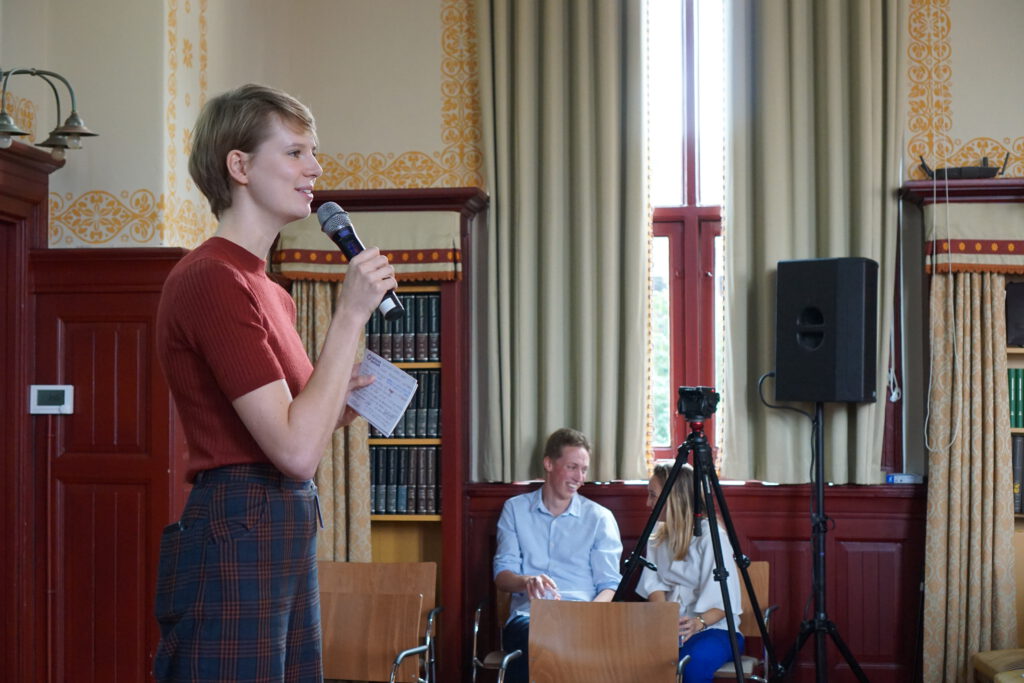
Begeleiding door partners
Tijdens de DenkTank krijg je begeleiding van het team Nationale DenkTank en van onze partners:
- AEF: Hoe werkt de overheid?
- IJsfontein: Design Thinking
- IssueMakers: Communicatie & PR
- McKinsey & Company: Problem Solving
- MetaBolic: Visie & Theory of Change
- Motivaction: Publieksenquête
